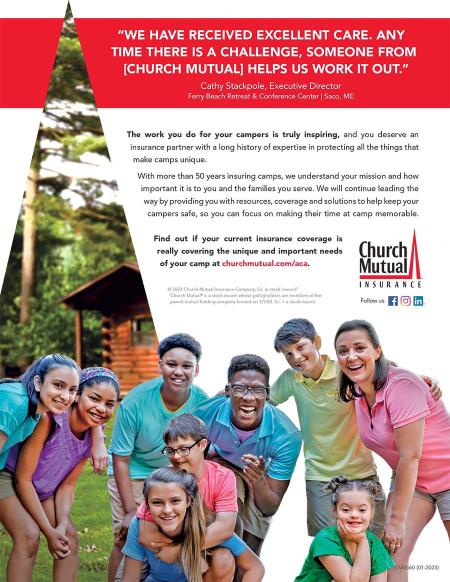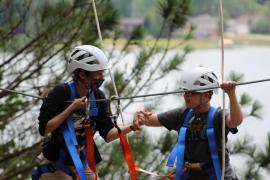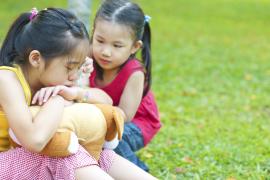I spent my childhood summers at a sleepaway camp in Pennsylvania, and I loved it. When I turned 18 in 2021, I couldn’t wait to work as a counselor myself. I was following in my mother’s footsteps; she worked at the same camp during her summer before starting college.
As a former camper, my memories of the amazing times I enjoyed with my counselors (old enough to be wise authority figures but not too old to be buddies) bolstered my enthusiasm. But as a counselor, it took me just a few days to realize that the relationship between a camper and a counselor is not that of two friends. The counselor is responsible at every moment for the campers’ lives. Nothing — not my experience as a camper, not the 20-minute job interview I had for the position in April, and not the cursory orientation and welcome video — prepared me to shoulder these children’s mental well-being.
Kids in activities I supervised, kids in my cabin, kids I’d only met once or twice — everyone confided in me. As someone with two younger brothers, I was perfectly capable of dealing with friendship dramas, unrequited crushes, and the hurt of missing out on the lead in the camp theater production. I was not prepared to tackle the weighty issues of their parents’ divorces, the death of loved ones, or severe depression and self-harm. I was overwhelmed, but when I informed the head counselor about the suffering these kids were enduring, she told me that unless a camper presented a clear danger to themselves or others I needn’t worry.
Counselors weren’t supposed to directly address such issues because, more often than not, the kid in question was just homesick or longing for attention. The best solution, I was told, was to leave the kid alone and show them that posturing wouldn’t work in the real world. However, this solution didn’t stop the kids from coming to me with increasingly shocking problems.
One night, a girl broke down crying in our cabin after someone mentioned a prescription drug. When I tried to comfort her outside, I was horrified to learn that her sister had overdosed and died by suicide. I had nothing to offer her but empty platitudes, hyperaware of my uselessness.
The lack of mental health training and counseling at some summer camps takes a toll on not only the campers, but on the counselors who are responsible for caring for them.
This isn’t a new problem. My mother has regaled me with stories about how her campers also confided in her about their parents’ marital problems or their struggles with eating disorders.
No grand tradition of mental health training exists at summer camps like the one I worked at. I researched the websites of 10 prestigious sleepaway camps to learn about their policies on mental health treatment. While all spoke in great length about their wonderful health centers and talented nurses, not one mentioned psychiatric counseling or professional mental wellness monitoring that went beyond a cursory check-in on the first day.
Summer camp administrators need to provide mental health treatment services. They need to develop mental wellness training for their counselors too. This training doesn’t have to be extensive — just sufficient to help counselors learn to recognize warning signs, how to address issues that they can tackle, and who to contact when they see larger problems emerge. Mental health monitoring will benefit both campers and counselors in need of support. Summer camps are expected to staff their health centers with professionals who can deal with physical health concerns, but we need to work mental health into the conversation too.
Sylvi Stein is a sophomore at Columbia University. She has worked as a lifeguard and an arts counselor at French Woods Festival. Her writing has been published by That Which Remains Journal, Rattle, and Olney Magazine, among others.



